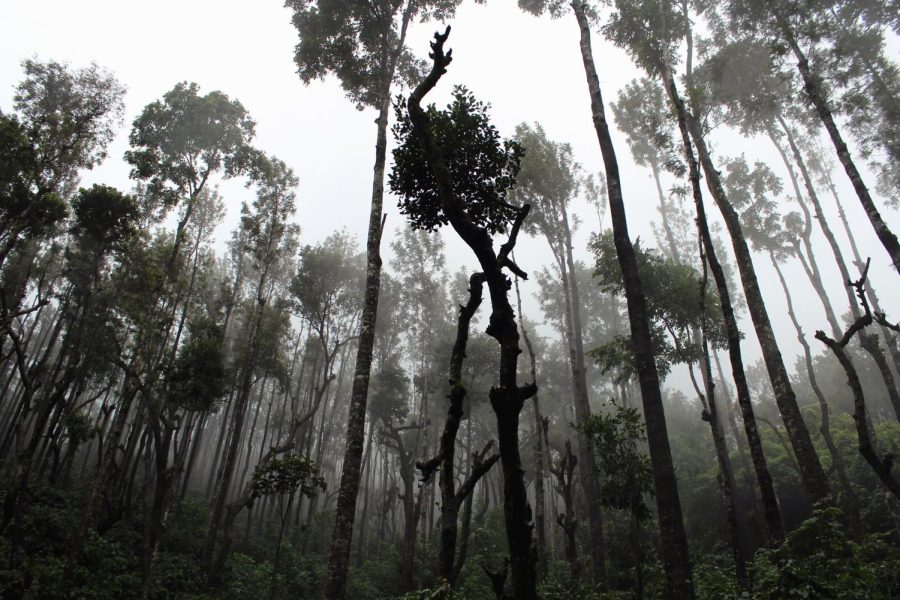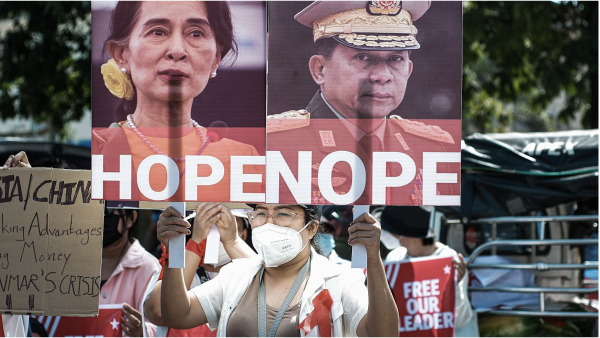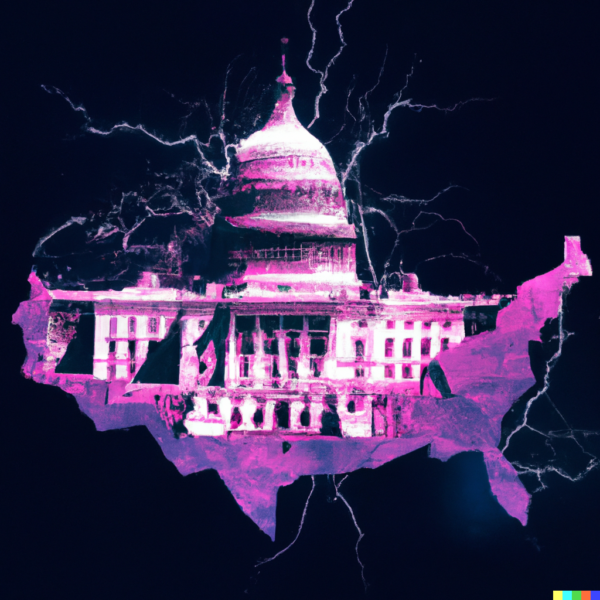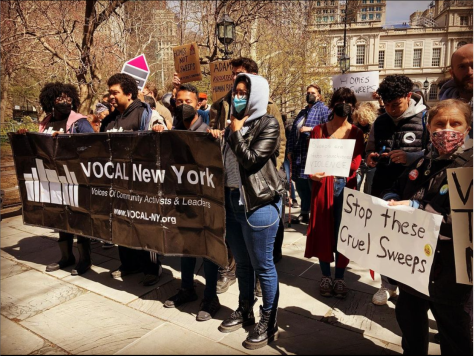Lines of Flight: Death and Deforestation in Brazil
A Postscript to “The Anthropocene and Posthumanism”
A series of unexpected events and activity in other institutions has prevented me from writing as much as I would like to. In my last article, “The Anthropocene and Posthumanism” (published in the Lines of Flight column, to which this article also belongs), I discuss the possibilities of a radical change in metaphysics, particularly in the context of ecosocial slaughter. The article was published during Indigenous People’s day, but regrettably does not tackle indigenous metaphysics (of course, not all indigenous societies have the same cosmologies) such as those that already decenter the prioritization of the human. In this piece, however, I would like to delve in a little deeper on the ecological (and social) crisis plaguing Brazil, and much of the world for that matter.
In any case, before I begin my article, I would like to render more public the comment I posted below my article:
On the event of Indigenous Peoples Day, and upon some reflection of this article, I would like to note that what is called “posthumanism” by Western philosophy, as a form of combating climate change and the Anthropocene, is a state of being that is practiced by many indigenous societies all over the world. Although I think that posthumanism, as a western construct, is still interesting and useful, I must recognize the relevance of indigenous practices to it. In Eduardo Viveiro de Castro’s ethnography Cannibal Metaphysics1, he notes how some Amerindian2 societies view animals not as nonhuman, but rather as humans in other bodies. In other words, it views the same things in different ways.
If we maintain the dissolution of the human-nature binary to be necessary for combating climate change, the notion of “land back” becomes ever more important because it is the original peoples of these territories who have the most experience and skill in taking care of the land. Land back refers to returning occupied territories to their rightful owners: the Lenape in ‘New York’, the Taíno in the ‘Caribbean’, the Guarani in large parts of ‘Brazil’.
“Land back” is an ethical obligation regardless of its relation to fighting climate change.
I will also refer to the opinion of an Indigenous leader, but I would like to make it clear that of course people disagree on how to go about things even if they are from the same place, and I do not mean to generalize.
So now I begin.
I was recently asked: why don’t rich countries pay Brazilian farmers and ranchers (those responsible for the deforestation of large parts of the Amazon) to not cut down trees? Although this might seem a simple question with a simple answer, a good analysis of forest management in Brazil, viewed through this question, is doomed from the start because of this very simplicity.
This response focuses not on providing alternative solutions to the ecocide of the Brazilian landscape—this is what my previous article did; rather, it takes up a deconstructive task whose purpose is to lay the foundation (or get rid of the current base) for the creation of new ways of thinking— namely posthumanism— that may finally do something for us. Although I am an expat, and thus somewhat detached from the Brazilian thought-world, this topic is of a very personal nature to me as many people I know have directly suffered from deforestation. Despite this, I do not view this question as strictly antagonistic, but rather as a first step in the process of constructing new ideas on forest management and conservation. I also stray away from any explicit social theory, not out of any disagreement with a particular school, but simply because I do not have the patience to look over my notes. However, if you would like a more theoretical background, I tend to draw on the postcolonial tradition—marxism, neo-marxism, and poststructuralism as well.
Brazil is a megadiverse country not only ecologically but also racially, socially, and economically. It contains six different ecosystems— tropical wetlands (Pantanal), tropical savannahs (Cerrado), the Atlantic forests (Mata Atlantica), plains (Pampas), the Caatinga (a desert-like biome exclusive to Brazil), and the tropical rainforest— of which the Amazon is only part of one. This immediately complexifies any issue that would be rather simple in another, more homogenous, country.
The Amazon is not a forest, at least not entirely. The Amazon is a home for millions of indigenous and non-indigenous people (indigenous people occupy a minority here). Amazonia is not a pristine environment, untouched by “civilization” (which implies the industrialized powers of colonial and neo-colonial Brazil); rather, it is an environment that, like any other (industrial or nonindustrial), has endured immense alterations to its natural state. It has never been a reservoir of purity, nor of savagery. If we do not acknowledge this basic fact, then we immediately repress countless already forgotten voices, and there is nothing more violent than this. Deforestation is, therefore, not only ecological but also social in nature. Thus, fighting deforestation must include methods of managing and preserving culture.
One reason why people might want to give money to the “Amazon” (an abstraction which ignores the most basic reality of its complexity) is to make it, let’s say, a natural reservoir where human presence is essentially forbidden. Well, the Amazon is huge. It is larger than various countries in Europe. What would happen if Brazil sent money to these countries and told them, “We will pay you to make sure that your landscape goes untouched because you have pretty castles.” What then? How would we react? People need the Amazon because of its natural capital—of course, by designating Nature as capital, we immediately open it up for exploitation— and to be clear, I do not believe Nature should have to be commodified. The issue is whether this is done sustainably or not, and if we can do this while supporting local collectives who can sustainably manage and protect the forest, according to traditional practices—thereby supporting both ecological and social sustainability.
What is more, we already have protected areas; they are flawed of course, but they exist. One of the many problems Brazil has is that the state agencies responsible for the protection of land (e.g. Indigenous reservations) are run by incompetent politicians put into power not because of their qualifications, but by their relationship to the President. For example, Ituna-Itatá land has been awaiting demarcation for 10 years and has reached a point where its size has decreased by the equivalent of 26.7 thousand soccer fields for agribusiness or other purposes3. The FUNAI (the National Indigenous Foundation), the agency responsible for protecting Indigenous land, refuses to protect Ituna-Itatá territory, all the while being funded by a senator known for his ruralist activity (COIAB). This bureaucracy and corruption in the federal structure is the problem with the way we approach land, and therefore, conservation.
Now, this being said, as hard as it might seem to believe, Brazil is a smart country. We have some of the most influential economists (e.g. Fernando Henrique Cardoso) and sociologists (Gilberto Freyre, Darcy Ribeiro) in the world. We have the most prestigious institutions in Latin America (USP, UNICAMP, UNB, UFRJ, Museu Nacional), and most importantly, we have competence. There are thousands of hardworking, intelligent, yet underpaid, workers in the government who can very easily take care of the problem of the Amazon. It is not their fault that the State functions as it does, it is the fault of the fascist idiocracy (I don’t use the term “fascist” as a solely derogatory term, it is a diagnostic category4). Brazil does not need to rely on other countries; we are perfectly capable on our own provided we get rid of the current structures in place5. I don’t mean this in some sort of nationalist, isolationist way; rather, in the sense that we need to combat the notion that less “developed” countries are not capable of managing themselves.
Policies that have countries pay for other countries to take care of their forests already exist. Let’s take the UN REDD (the UN Initiative on Reducing Emissions from Deforestation and Forest Degradation in low-income countries) formed in 2008. REDD stresses the importance of conservation, the sustainable management of forests and an increase in carbon stocks. As of 2014, its funding reached almost $200 million, with Norway being the leading donor. We might be inclined to delve into praise, but is it not true that Norway is one of the largest oil producers in the world, producing 1,647,975 billion barrels per day? Is Norway not one of the largest arms dealing nations, insuring profit in the soon-to-come climate wars? It makes you wonder why on UN Day we had representatives from some very culpable nations in the world and no representation from anybody who is actually suffering from the consequences of these investments. Sure, things are being done to improve, but many of the countries that label themselves as humanitarian and in the pursuit of a common goal of equality for everyone are frequently the ones that marginalized peoples need saving from6.
When developed countries donate to REDD, there is a (perhaps unwilled) result. It ends up shifting the blame from the Global North to countries like Brazil, that already suffer from centuries of prejudice and international, structural violence. The point is, rich countries like Norway have their own issues to take care of.
Why would rich countries, or literally anybody in their right mind, pay the Brazilian farmers and ranchers, who are already rich because of their massive violent projects of Indigenous and ecological displacement and destruction? The way they get their farmland is through the violent expulsion of Indigenous and non-Indigenous communities who live on the desired land. Why would one give money to them instead of the newly-widowed mother of three, victim of Indigenous genocide and who lives 10 hours away from the nearest hospital? Why would one not give money to the family that is under constant torture, whose lives have been shot down, beat up, raped, and burned by these very farmers? If anything, we should give money to the people who actually need it.
If we give more money to the farmers, they’re not going to do anything other than buy more tractors, buy more cattle, more gas, more ammunition, and more guns.
However, my perspective is that of a Brazilian from a place which never saw forests. So I end this article with a speech by Ninawa Huni Kui, president of the Federation of the Huni Kui Peoples from so-called Acre, Brazil.
The REDD program, which funds environmental programs, discusses carbon credits, is a grand trickery for the people of the planet. They say they will reduce the emissions of companies and compensate the Amazonian region with money. In actuality this is a lie because these companies will keep contaminating, they will continue polluting. And there’s a key factor that we, Indigenous peoples, see is happening, is that today everything is becoming commodified, including nature. Today you sell water, the forest, the air, the land. So there is a huge, violent and armed, epistemic violence. When they say, “Indigenous peoples must be compensated because for many years they hid protecting the forests” this is once again a trickery, they don’t mean this. This is so that these people can continue exploiting our lands. So we call this neocolonialism of Indigenous territories: forceful relocation, expulsion. So I appeal to these governments, NGOs, and international funds that discuss this project (REDD) that they simply stop, because this is killing our souls, our bodies, our families. This will cause irreparable damage to future generations. So let’s not trick people, let’s be honest. That is my vision, but it is not just my vision. I am against REDD precisely because of the various testimonies I’ve gathered from so many places, studying what this project has done to our communities.
1 I have absolutely nothing against Viveiros de Castro, but he is yet another white male anthropologist. He is great in his own respect but we NEED an INDIGENOUS anthropology! Not that it doesn’t exist, but it is certainly not as visible as it should be— by design.
2 This is the term he uses, not sure how I feel about it.
3 For some reason that is beyond me, people like to measure the size of the Amazon in soccer fields.
4 “I never use the term ‘fascist’ as a term of abuse; to me it is a diagnostic category.” (Ashis Nandy on Modi)
5 The Bolsa Floresta is one example of this. Started by Brazilians, then taken over by the UN.
6 I am not only talking about Norway. Norway is directly relevant to ecological issues, but if we look at other issues independent from Brazil, such as the War on Terror, we can immediately see that most recent wars have been started in the name of human rights (whether this be the USA’s multiple interventions in Latin American and in the Middle East, or in Russia invading Ukraine under the pretext that they need to save ethnic Russians from Ukrainian-sponsered genocide). Ironically, countless people that are supposed to be liberated are actually either forced to migrate (and face structural violence and racism in their new countries), or end up being killed in these wars.













